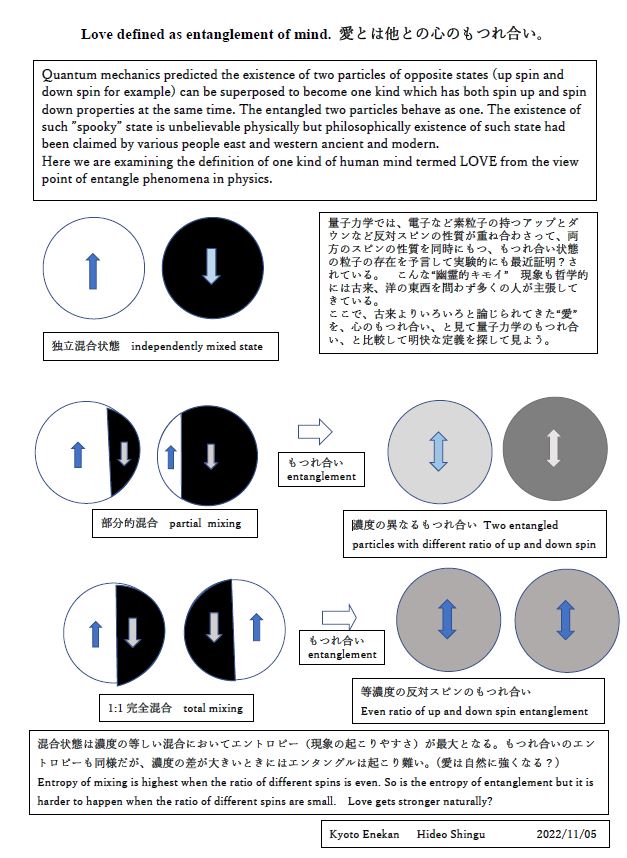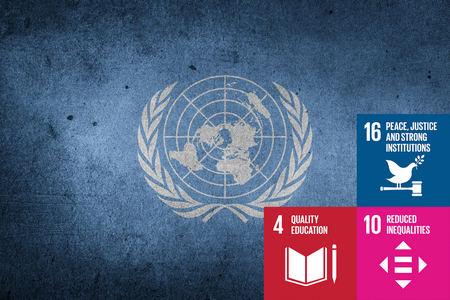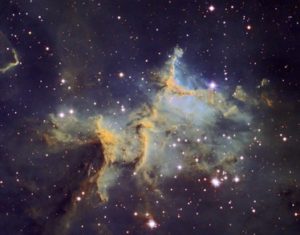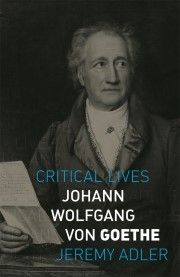Lacking any spiritual premise, codes of ethics and moral value do not easily take root in society. They are essentially transient perceptions of good behavior imposed by fashion or power. Ironically, this postmodern culture seems itself to suffer from a bleak entanglement of senseless connections, without obvious means to liberate itself from the bonds of brute materiality. The appropriate response to this crisis is reunion not only between the self and the world, but also between the heart and the mind
The ambition of the Circle is to inject fresh ideas and modes of thinking drawn from time honored philosophical, cultural and religious traditions into the international public discourse to stimulate the intrinsic spirit of humanity to seek more satisfying ways to raise the levels of humanity in society and improve the quality of life on the planet.
The “spirit” in humankind has significance for society in many ways. It is in honest and humble recourse to some harmonious, transcendent consciousness or power that societies finds firm grounds for the elaboration of ethical and moral norms.The search for meaning and purpose is not about grand ideologies or social experiments in the name of God. It is “simply” a quest for sense and direction that can inspire human flourishing, social harmony, and life in equilibrium with nature. It is in its largest sense about “being.” The decisive obstacle to this effort is that the prevailing strain of Western culture and commercialism seems to have broken away from its human, spiritual, and moral moorings.
Universal Love as Political Philosophy and Practice
Points ot Wisdom: Subsidiarity and Generosity to the Other
By Edward Domen
Walk cheerfully over the world, answering that of God (of good) in everyone.
- Walk – don’t drive or fly, to better be in contact with the people & conditions you meet
- Cheerfully- encourages friendly dialogue, more conducive to a settlement which satisfies all parties.
- World – your actions may affect people anywhere : viz. climate change
- Answering – listen to what they have to say so that you can take their concerns & knowledge fully into account
Applying an Ethic of Love to Current Global Crises: …
By Dominique Michal
Not sure that history would give us sound examples
Has love has ever lead countries, counties, or villages?
Have the very first nations been structured around an ethic of love?
Or was it that looking after each other was just a survival answer to their environment? Is the idea of love in politics a resurgence of the “Summer in love” in the 1960’s?
And yes! an incredible number of philosophers, thinkers, spiritual leaders, politicians have talked about it over the years: Gandhi, Martin Luther King, Pope Francis, Vaclav Havel …to what avail? …
Selfless Love and Interdependence: Humans and Nature
by Noriko Hashimoto
Human Interdependence with Nature Challenged by Machines …
Nature is, according to Professor Imamichi, the teacher of “waiting and enduring”; it is not enough to look at nature, objectively, by looking after nature because “human beings are in essence a part of nature”. So, by making our inner selves truly calm, the meaning of waiting can be understood. “Stressing temporality means emulating nature’s waiting stance. This fosters the patience to wait with the unfolding of time (zeitigen), as well as an awareness of waiting.”…
Now, we got to get this thing right. What is needed is a realization that power without love is reckless and abusive, and that love without power is sentimental and anemic. [Yes] Power at its best [applause], power at its best is love [Yes] implementing the demands of justice, and justice at its best is love correcting everything that stands against love. And this is what we must see as we move on.
Martin Luther King

Love is the strongest force the world possesses, and yet it is the humblest imaginable…. A love that is based on the goodness of those whom you love is a mercenary affair, whereas true love is self-effacing and demands no consideration.… Wherever you are confronted with an opponent, conquer him with love. In a crude manner, I have worked it out in my life. That does not mean that all my difficulties are solved. I have found, however, that this Law of Love has answered as the Law of Destruction has never done.
Ghandi
I see science and mysticism as two complimentary manifestations of the human mind; of its rational and intuitive faculties. The modern physicist experiences the world through an extreme specialization of the rational mind; the mystic through an extreme specialization of the intuitive mind. The two approaches are entirely different and involve far more than a certain view of the physical world. However, they are complimentary, both of them are necessary, supplementing one another for a fuller understanding of the world. To paraphrase an old Chinese saying, mystics understand the roots of the Tao but not its branches; scientists understand its branches but not its roots. [Neither science nor mysticism need each other] but men and women need both. … What we need…is a dynamic interplay between mystical intuition and scientific analysis.
Fridjof Capra, from his book TheTao of Physics
Love, Physics and Noosphere
By Hideo Shingu
2022/11/26
Noosphere may be understood as the expression of states of mind which is the outgrowth of the living earth or biosphere according to Vladimir Vernadsky. Physics and mind are two different matters existing in rather opposite ways in nature. Two opposite things exist independently and cannot be treated as one, said Aristotle and Einstein. However, pre-Aristotle philosopher Heraclitus is known for his philosophy of “unity of opposite” Today this may be represented in physics by quantum entanglement.
Story of Entanglement Now we will seek a curious and interesting relation between physics and the mind using the Nobel prize winning example of the physical phenomena called quantum entanglement. ,,,

Écologie politique : Je plaide pour une écologie de l’amour
By Phillip Roche
Tout engagement efficace pour l’écologie commence par un acte d’amour. J’ai été toute ma vie un militant, un activiste et je n’hésite pas à me qualifier de fondamentaliste si l’on entend par là la conviction profonde que la recherche d’harmonie entre l’humanité et la nature est une tâche essentielle,
Comparative Politics and Ethics of Power or Love
Observation by Jeremy Thompson [New Zealand]
Among the thoughts I have had about Politics and Love include the following contemporary examples at polar opposite ends of the political spectrum
Vladimir Putin
President of Russia exemplifies the worst of Politics of Power on both humanitarian and financial grounds
Jacinda Ardern
Jacinda Ardern is an example of how a strong leader can exhibit ‘the Power of Politics’ motivated by Love for her People in a positive way with humanitarian goodness at the centre of policy formation
Universal Selfless Love [Agape] as a Political Philosophy and Practice
A Bahá’í perspective on Love
Arthur Lyon Dahl
The Bahá’í concept of universal selfless love is very broad. The following texts can help us to define such love and its applications, including in politics. The first comes from ‘Abdu’l-Bahá, the Son of the founder of the Bahá’í Faith:
“Know thou of a certainty that Love is the secret of God’s holy Dispensation, the manifestation of the All-Merciful, the fountain of spiritual outpourings
Love is the light that guideth in darkness, the living link that uniteth God with man, that assureth the progress of every illumined soul. Love is the most great law that ruleth this mighty and heavenly cycle, the unique power that bindeth together the divers elements of this material world, the supreme magnetic force that directeth the movements of the spheres in the celestial realms.

The Unifying Power of Love in Politics: What Is or Should Be the Role of Love in Political Reconciliation, Relations and Communications?
By Konrad Raiser
Introducing the power of love into politics challenges the claims of “realism”of the classical understanding of the role of power in politics. It challenges the assumptions regarding struggle and the imposition of order….
The attempt to introduce the power of love into politics can easily be disqualified as “blue-eyed” and “unrealistic”. This has been a central concern in the ethical reflection of Reinhold Niebuhr. …
However, considering love not only as a moral demand but with Tillich as the “urge towards the reunion of the separated”, the power of love must find expression in an equally dynamic understanding and practice of justice in the sense not of retributive but rather transformative justice aiming at right relationships.
UNIVERSAL SELFLESS LOVE AS A POLITICAL PHILOSOPHY AND PRACTICE
STATEMENTS AND COMMENTS AT 3rd TRIGLAV ZOOM
Compiled by Jacques Baudot
This paper presents the interventions of participants, comments on the connexions these remarks have to previous discussions of the Circle, and on issues that ought to be further examined. These comments and suggestions are in italics and noted as JB …
Nitin Desai : Reasons for Introducing Love in Politics
In the past three decades the world has been dominated by neo-liberal economics based on individualism and efficiency narrowly conceived and measured. To introduce love in politics means fighting individualism and also a simplistic and “economistic” definition of efficiency.
Love’s incarnation in a famous Noh play by Daisetz Suzuki, Buddhist monk, essayist, and philosopher, as Yama-Uba meaning “old woman in the mountains.” She is the temporal incarnation of the Principle of Love that in reality moves secretly in every person.
Usually not conscious of this Principle people regularly ignore it. In the play assuming love to be
incarnated in a young and beautiful woman, people fail to recognize its embodiment in a white-
haired wizened woman, her appearance symbolizing the reality of her ceaseless struggle in the
world. She suffers pains gladly, knows no rest, and interruption in her work. She incarnates the
unknown and invisible agent in Nature and humanity, that humanity would gratefully recognize
in a happy way but with whom they have to come to grips with to grasp the actuality of Nature.
Noriko Hashimoto
Why a Discussion on a Politics of Love
By Barbara Baudot
The choice of this topic is consistent with the original intent of the Circle which is to contribute to the enrichment of the international and global discourse. The word ‘Love’is increasingly finding its place in the public discourse on the current state of the world, the state of nature, and civil society whether at national or international levels. Suffice at this point to refer to the reports of our last two meetings. In particular, the report on Common Good and Social Justice which includes a discussion on ethic of love versus ethic of fear.
Universal Love as a Political Philosophy and Practice in Furthering Human Rights
By Margo Picken
Could love as a political philosophy and practice serve to re-build trust and overcome the politics of hate and fear? Could it inject the fresh thinking and language that is needed, and galvanise people’s imagination, sympathy, and goodwill? Could it serve as a unifying force to overcome divisions, and bring together the thousands of determined but fragmented and uncoordinated protest and activist movements around shared values of love, kindness, compassion, equality, solidarity, fraternity, integrity?
Marie Curie: Nothing in life is to be feared. It is only to be understood. Now is the time to understand more so that we may fear less.Is this Triglav’s role: to contribute to “understanding more” so that we may fear less, and in the context of the upcoming 2025 World Social Summit by distilling and handing on its accumulated knowledge and experience?

Report of the 23/1/21 zoom meeting of the Triglav Circle has just been published on the web site together with the two videos of the zoom sessions AM for participants in Europe and Asia and PM for participants in Europe and North America.
COMMON GOOD AND SOCIAL JUSTICE
TRIGLAV CIRCLE MEETING 23/1/21
REPORT
The “cry of the earth” and the “cry of the poor” have to be heard, said Pope Francis in his encyclical letter Laudato S’I.[1] The disharmonies between humankind and nature is linked to other crises, including the Covid pandemic, increasing inequalities and deprivation. Widespread violence, insecurity, and contempt of many governments for human rights further put into question the foundations of modern civilization. Could the notion of common good, with its material, moral and spiritual exigencies, provide the intellectual and political framework to guide corrective public and private policies and actions at all levels?
[1] Pope Francis, Laudato S’i On Care for Our Common Home, Encyclical Letter, 2015, The World Among Us Press, Frederick, Maryland, USA
Clic here to read the report
What lessons will we learn from the pandemic by Arthur Dahl
It may seem weird to be thankful for a catastrophe, but the Covid-19 pandemic now sweeping the world, its ultimate outcome still uncertain, may be a blessing in disguise or a cloud with a silver lining.
Let me explain.
I’m not minimizing the suffering so many people have endured, or the grief that coronavirus deaths have engendered. Instead, I’m wondering whether this deadly virus has a larger lesson to teach us, if we’re willing to learn it.
The Genealogy of ‘Human Dignity” : A New Perspctive
By Jeremy Adler
This article considers the history of the concept of human dignity from its origins in the Bible and in Stoic philosophy down to the twentieth century. The major thinkers who contributed to the development of the idea are examined, including Pico della Mirandola, Pufendorf, Kant, and Broch. Similarly, the views of contemporary philosophers such as Jürgen Habermas and Martha Nussbaum are considered. The central thesis in this argument, which diverges from the standard view, is that Goethe occupies a pivotal role in this tradition. Goethe’s creation of an organic, holistic and self-reflective view of human dignity established a new paradigm. This innovative concept of dignity as an expression of human growth and self-realization found its way into the UDHR and German Basic Law. It is a position adopted by the German Constitutional Court in several important rulings; and it continues to find an echo in the writings of contemporary philosophers.
Read more go to: https://doi.org/10.1080/09593683.2020.1723314
Highlights
Transcendence and Nature
Scientism and spirituality
Grand theory of peace
Individuality and community
Morality, society and politics
Spirituality versus religion in governance






